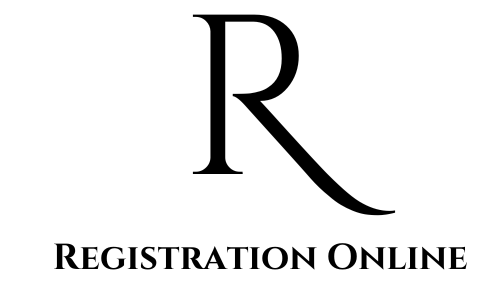Tourism Company Registration In Pakistan Your Path to Success

Pakistan is a country rich in natural beauty, cultural heritage, and historical significance. From the breathtaking peaks of the Himalayas to the ancient ruins of Mohenjo-Daro, Pakistan offers a diverse array of tourist attractions that draw visitors from around the world. The tourism industry in Pakistan has been steadily growing, contributing significantly to the nation’s economy and providing numerous opportunities for entrepreneurs.
Tourism company registration in Pakistan is a crucial step for anyone looking to enter this vibrant industry. A registered company not only ensures legal compliance but also builds trust with clients and partners. It provides a structured framework within which you can operate, allowing you to focus on delivering exceptional travel experiences.
In this blog post, we will guide you through the entire process of tourism company registration in Pakistan. We will cover the benefits of registration, the necessary pre-registration requirements, and a detailed, step-by-step breakdown of the registration process. Additionally, we’ll discuss post-registration steps, marketing strategies, compliance needs, and tips for achieving success in the tourism industry. Whether you’re a seasoned entrepreneur or just starting, this guide will be your roadmap to establishing a successful tourism business in Pakistan.
Understanding the Tourism Company Registration in Pakistan

Overview of Tourism Opportunities in Pakistan
Pakistan is a country blessed with diverse landscapes, rich history, and a vibrant culture, making it a unique destination for tourists. From the towering mountains of the north, such as K2 and Nanga Parbat, to the scenic valleys of Hunza and Swat, and the beautiful coastline along the Arabian Sea, Pakistan offers a wide range of natural attractions. Additionally, the country is home to significant historical sites like the ancient city of Taxila, the Mughal architecture of Lahore, and the UNESCO World Heritage sites of Mohenjo-Daro and the Makli Necropolis.
Key Attractions and Popular Tourist Destinations
- Northern Areas:
- Hunza Valley: Known for its stunning landscapes, apricot orchards, and warm hospitality.
- Skardu: Gateway to some of the highest peaks in the world, offering trekking, climbing, and scenic beauty.
- Fairy Meadows: A lush green plateau offering a breathtaking view of Nanga Parbat.
- Cultural and Historical Sites:
- Lahore: The cultural capital of Pakistan, famous for its Mughal architecture, including the Lahore Fort and Badshahi Mosque.
- Taxila: An ancient city that was a major center of Buddhism and a UNESCO World Heritage site.
- Mohenjo-Daro: One of the largest settlements of the ancient Indus Valley Civilization.
- Coastal and Desert Regions:
- Karachi: Pakistan’s largest city, offering beaches, historical sites, and a bustling urban experience.
- Gwadar: Known for its emerging port and stunning coastal scenery.
- Thar Desert: Offers unique desert landscapes, cultural festivals, and camel safaris.
Importance of a Tourism Company Registration in Pakistan Providing Quality Services
The tourism industry in Pakistan has immense potential, but to tap into this potential effectively, having a registered tourism company is essential. Here’s why:
- Legal Compliance and Credibility:
- A registered company operates within the legal framework, ensuring compliance with local laws and regulations. This builds credibility and trust among clients and partners.
- Access to Government Support and Incentives:
- Registered tourism companies can benefit from various government initiatives, subsidies, and incentives aimed at promoting tourism.
- Partnership and Collaboration Opportunities:
- Registration opens doors to partnerships with hotels, airlines, and other service providers, enhancing the range and quality of services you can offer.
- Enhanced Customer Trust:
- Clients prefer dealing with registered companies as they provide a sense of security and reliability. A registered tourism company is perceived as more professional and trustworthy.
- Structured Operations:
- Registration helps in establishing a structured business model, with clear guidelines for operations, financial management, and service delivery, leading to efficient and effective business practices.
Benefits of Tourism Company Registration In Pakistan

Legal Recognition and Credibility
Registering your tourism company provides you with legal recognition, distinguishing your business as a legitimate entity in the eyes of the law. This legal status allows you to operate without the fear of legal repercussions and ensures that your business adheres to local regulations and standards. Moreover, a registered company is often viewed as more credible and trustworthy by potential clients, investors, and partners. This credibility can be crucial in attracting business and fostering long-term relationships.
Access to Government Incentives and Support
The Pakistani government offers various incentives and support programs to encourage the growth of the tourism industry. By registering your tourism company, you become eligible for these benefits, which may include tax breaks, grants, and subsidies aimed at promoting tourism development. Additionally, registered companies can participate in government-sponsored training programs, workshops, and seminars designed to enhance business skills and industry knowledge.
Opportunities for Partnerships and Collaborations
A registered tourism company can more easily form partnerships and collaborations with other businesses and organizations within the industry. These partnerships might include agreements with hotels, airlines, transport services, and local guides, which can help you offer comprehensive and attractive travel packages. Collaboration with other businesses not only expands your service offerings but also enhances your market reach and reputation.
Enhanced Customer Trust and Confidence
Customers are more likely to trust and engage with a registered tourism company. The registration serves as a sign of professionalism and commitment to providing quality services. It reassures clients that your business is reliable, operates within the legal framework, and is accountable to regulatory bodies. This increased trust can lead to higher customer satisfaction, repeat business, and positive word-of-mouth referrals, all of which are vital for the success and growth of your tourism company.
Pre-Registration Requirements
Business Plan and Feasibility Study
Before registering your tourism company, it’s essential to develop a comprehensive business plan and conduct a feasibility study. A business plan outlines your company’s mission, vision, target market, marketing strategy, financial projections, and operational plan. It serves as a roadmap for your business and helps in identifying potential challenges and opportunities.
A feasibility study, on the other hand, assesses the practicality and viability of your business idea. It involves analyzing the market demand, competition, financial costs, and potential profitability. This study helps in determining whether your business concept is sustainable and worth pursuing. Together, these documents provide a solid foundation for your business and are often required by regulatory bodies and investors.
Choosing a Suitable Business Structure
The next step is to choose a suitable business structure for your tourism company. In Pakistan, you have several options:
- Sole Proprietorship:
- Advantages: Simple to set up, low cost, complete control over the business.
- Disadvantages: Unlimited personal liability, limited access to capital.
- Partnership:
- Advantages: Shared responsibility and resources, combined skills and expertise, relatively easy to establish.
- Disadvantages: Joint liability, potential for conflicts between partners, profit sharing.
- Company (Private Limited or Public Limited):
- Advantages: Limited liability, easier access to capital, separate legal entity, enhanced credibility.
- Disadvantages: More complex and costly to set up, stricter regulatory requirements, need for detailed record-keeping.
Choosing the right business structure depends on various factors, including the scale of your business, the level of control you want, and your risk tolerance. It’s advisable to consult with a legal or business advisor to make an informed decision.
Understanding Regulatory Requirements and Licenses
Before registering your tourism company, you must understand and comply with the regulatory requirements and obtain the necessary licenses. Key steps include:
- Company Registration with SECP:
- Reserve a unique name for your company.
- Prepare and submit the required documents, including the Memorandum of Association and Articles of Association.
- Pay the registration fees and complete the online registration process with the Securities and Exchange Commission of Pakistan (SECP).
- Tourism Department Registration:
- Register your company with the relevant provincial or federal tourism department.
- Obtain a tourism license that allows you to operate legally within the tourism industry.
- Trade License from Local Authorities:
- Apply for a trade license from the local municipal or district authorities where your business will be based.
- Other Relevant Permits:
- Depending on the nature of your services, you may need additional permits, such as environmental clearances, health and safety certificates, or transportation permits.
Understanding these regulatory requirements and ensuring compliance is crucial for the smooth operation of your tourism business.
Step-by-Step Registration Process
Step 1: Name Reservation
Choosing a Unique Company Name
- The first step in registering your tourism company is selecting a unique and appropriate name that reflects your brand and business objectives. Ensure that the name is not already in use by another business.
- Check the availability of your chosen name using the SECP’s online name search tool.
Applying for Name Reservation with the SECP (Securities and Exchange Commission of Pakistan)
- Once you have chosen a unique name, you need to apply for name reservation with the SECP.
- Submit an online application through the SECP e-Services portal.
- Pay the name reservation fee and wait for approval, which usually takes a few days. Upon approval, you will receive a name reservation certificate valid for 90 days, within which you must complete the registration process.
Step 2: Document Preparation
Preparing Necessary Documents (Memorandum of Association, Articles of Association, etc.)
- Prepare the Memorandum of Association (MOA) and Articles of Association (AOA), which outline the objectives, rules, and regulations governing your company.
- The MOA includes the company name, registered office address, objectives of the company, and details of the initial shareholders.
- The AOA specifies the internal management, roles, and responsibilities of directors, and the conduct of meetings.
Ensuring Compliance with Regulatory Requirements
- Ensure that all documents comply with SECP regulations and legal requirements.
- Obtain signatures from the initial shareholders and directors on the MOA and AOA.
- If necessary, seek assistance from a legal advisor or company secretary to ensure that all documentation is in order.
Step 3: Submitting the Application
Filing the Registration Application with the SECP
- Log in to the SECP e-Services portal and complete the online application form for company registration.
- Attach the necessary documents, including the MOA, AOA, and copies of the national identity cards of the directors and shareholders.
Paying the Required Fees
- Calculate the registration fee based on the authorized capital of your company.
- Pay the required fee online through the SECP e-Services portal or designated banks.
Submission of Supporting Documents
- Submit the completed application along with the supporting documents and payment proof.
- The SECP will review the application, and if everything is in order, they will issue a certificate of incorporation.
Step 4: Obtaining Necessary Licenses and Permits
Tourism Department Registration
- After obtaining the certificate of incorporation, register your company with the relevant provincial or federal tourism department.
- Submit an application form along with required documents, such as the certificate of incorporation, MOA, AOA, and director’s details.
- Pay the registration fee and obtain a tourism license, which allows you to legally operate within the tourism industry.
Trade License from Local Authorities
- Apply for a trade license from the local municipal or district authorities where your business will be based.
- Submit the necessary documents, including the certificate of incorporation, MOA, AOA, and proof of business premises.
- Pay the trade license fee and comply with any local regulations.
Other Relevant Permits (e.g., Environmental, Health, and Safety)
- Depending on the nature of your tourism services, you may need additional permits, such as environmental clearances, health and safety certificates, or transportation permits.
- Identify the specific permits required for your business and apply through the relevant government departments.
- Ensure compliance with all regulatory requirements to avoid legal issues and ensure smooth operations.
Post-Registration Steps
Setting Up Your Business Operations
Once your tourism company is registered and you have obtained the necessary licenses, the next step is to set up your business operations. This involves establishing a physical office or an online presence where clients can reach you. Key steps include:
- Office Setup:
- Choose a suitable location for your office, ensuring it is accessible to clients and partners.
- Furnish the office with necessary equipment, such as computers, telephones, and office supplies.
- Set up a reliable communication system, including a business phone line and email address.
- Online Presence:
- Develop a professional website that showcases your services, packages, and contact information.
- Create social media profiles on platforms like Facebook, Instagram, and Twitter to engage with potential clients and promote your services.
- Implement an online booking and payment system to make it convenient for clients to book tours and make payments.
Hiring Skilled Staff and Tour Guides
The success of your tourism company largely depends on the quality of service you provide, which is influenced by the skills and expertise of your staff. Key considerations include:
- Recruiting Staff:
- Hire experienced and skilled professionals for various roles, such as customer service representatives, sales and marketing staff, and administrative personnel.
- Ensure that your team is knowledgeable about the tourism industry and possesses excellent communication and interpersonal skills.
- Hiring Tour Guides:
- Employ knowledgeable and experienced tour guides who are familiar with the destinations and attractions you offer.
- Ensure that your tour guides are well-trained in customer service, safety protocols, and local cultural norms.
- Provide ongoing training and development opportunities to keep your staff updated on industry trends and best practices.
Developing Partnerships with Hotels, Transport Services, and Other Stakeholders
Forming strategic partnerships with other businesses in the tourism industry can significantly enhance your service offerings and improve customer satisfaction. Key partnerships to consider include:
- Hotels and Accommodations:
- Collaborate with reputable hotels and guesthouses to offer your clients comfortable and reliable accommodation options.
- Negotiate special rates and packages that you can include in your tour offerings.
- Transport Services:
- Partner with reliable transport providers to ensure safe and comfortable travel for your clients.
- Include options for various modes of transport, such as cars, buses, and flights, depending on the tour package.
- Local Attractions and Activities:
- Work with local attractions, such as museums, historical sites, and adventure sports providers, to offer a diverse range of activities for your clients.
- Ensure that your partners adhere to safety standards and provide high-quality services.
- Food and Beverage Providers:
- Establish relationships with local restaurants and catering services to offer your clients authentic and enjoyable dining experiences.
- Consider dietary preferences and restrictions when selecting food and beverage partners.
Marketing and Promoting Your Tourism Company
Building a Strong Online Presence
In today’s digital age, having a robust online presence is crucial for the success of your tourism company. This involves creating and maintaining various online platforms where potential clients can discover and engage with your services. Key steps include:
- Professional Website:
- Develop a user-friendly and visually appealing website that reflects your brand identity.
- Include essential features such as detailed information about your tours and services, an online booking system, contact details, and customer testimonials.
- Optimize your website for search engines (SEO) to ensure it appears in relevant search results and attracts organic traffic.
- Social Media:
- Create profiles on major social media platforms like Facebook, Instagram, Twitter, and LinkedIn.
- Regularly post engaging content, including high-quality images, videos, travel tips, and updates about your services.
- Use social media to interact with your audience, respond to inquiries, and encourage customer reviews and feedback.
- Content Marketing:
- Start a blog on your website where you share travel guides, destination highlights, and industry news.
- Produce and share informative and entertaining content, such as blog posts, videos, and infographics, to attract and retain visitors.
Developing Effective Marketing Strategies
To reach your target audience and stand out in the competitive tourism market, you need to develop and implement effective marketing strategies. Key strategies include:
- Email Marketing:
- Build a mailing list of potential and existing clients.
- Send regular newsletters with updates, promotions, and personalized travel recommendations.
- Use email campaigns to keep your audience engaged and informed about new offers and services.
- Pay-Per-Click (PPC) Advertising:
- Run targeted PPC campaigns on search engines like Google and social media platforms.
- Use relevant keywords and compelling ad copy to attract clicks and drive traffic to your website.
- Monitor and optimize your campaigns to ensure a good return on investment (ROI).
- Influencer Marketing:
- Collaborate with travel influencers and bloggers who have a significant following in your target market.
- Offer them complimentary tours or experiences in exchange for reviews and promotions on their platforms.
- Leverage their reach and credibility to build awareness and attract new customers.
- Referral Programs:
- Implement a referral program where existing customers can refer new clients in exchange for discounts or incentives.
- Encourage satisfied clients to share their positive experiences with friends and family.
Participating in Tourism Fairs and Exhibitions
Tourism fairs and exhibitions provide excellent opportunities to network, showcase your services, and attract potential clients. Key steps include:
- Research and Selection:
- Identify relevant tourism fairs and exhibitions that align with your target market and business objectives.
- Consider both local and international events to broaden your reach.
- Preparation:
- Prepare attractive marketing materials, such as brochures, banners, and business cards.
- Develop a compelling booth design that highlights your brand and services.
- Plan interactive activities or demonstrations to engage visitors and leave a lasting impression.
- Networking:
- Take advantage of networking opportunities to connect with other industry professionals, potential partners, and clients.
- Attend workshops, seminars, and networking events to stay informed about industry trends and best practices.
- Follow-Up:
- Collect contact information from visitors and follow up with personalized emails or calls after the event.
- Offer special discounts or incentives to encourage new leads to book your services.
Compliance and Ongoing Requirements
Regularly Updating Company Records with the SECP
Maintaining up-to-date records with the Securities and Exchange Commission of Pakistan (SECP) is essential for ensuring your tourism company remains compliant with regulatory requirements. Key steps include:
- Annual Filings:
- Submit annual returns to the SECP, detailing the company’s financial performance and any changes in the company’s structure, such as new directors or shareholders.
- Ensure timely submission to avoid penalties and ensure transparency.
- Record Maintenance:
- Keep accurate and detailed records of all company transactions, financial statements, and minutes of meetings.
- Update the SECP with any significant changes, such as changes in the company’s registered office address, amendments to the Memorandum and Articles of Association, or changes in the directors and shareholders.
- Compliance Audits:
- Conduct regular internal audits to ensure compliance with SECP regulations and industry standards.
- Address any discrepancies or issues identified during audits promptly.
Renewing Licenses and Permits
To operate legally and maintain your company’s credibility, it’s essential to keep all necessary licenses and permits up to date. Key steps include:
- License Renewal:
- Monitor the expiration dates of all licenses and permits, such as the tourism department license, trade license, and any other relevant permits.
- Submit renewal applications well in advance of the expiration dates to avoid any interruptions in business operations.
- Regulatory Compliance:
- Ensure that your company continues to meet all the requirements set forth by licensing authorities.
- Stay informed about any changes in regulations or licensing requirements and adjust your business practices accordingly.
- Documentation:
- Maintain organized records of all licenses and permits, including copies of renewal applications and receipts of payments.
Adhering to Industry Standards and Regulations
Compliance with industry standards and regulations is crucial for maintaining a good reputation and ensuring the safety and satisfaction of your clients. Key steps include:
- Health and Safety Standards:
- Implement and regularly update health and safety protocols to ensure the well-being of your clients and staff.
- Conduct safety training for all employees, especially tour guides and drivers, to handle emergencies effectively.
- Environmental Regulations:
- Adhere to environmental laws and regulations, especially if your tours involve natural sites and ecotourism activities.
- Promote sustainable tourism practices, such as reducing waste, conserving natural resources, and respecting local wildlife and habitats.
- Customer Service Standards:
- Establish and enforce high standards of customer service to ensure a positive experience for your clients.
- Regularly seek feedback from clients and make necessary improvements based on their suggestions and complaints.
- Ethical Business Practices:
- Conduct your business with integrity and transparency, ensuring fair treatment of clients, employees, and partners.
- Avoid any practices that could harm your reputation or lead to legal complications, such as false advertising or overbooking.
Tips for Success in the Tourism Industry
Providing Exceptional Customer Service
Delivering outstanding customer service is key to differentiating your tourism company from competitors and ensuring repeat business. Here’s how to achieve it:
- Personalized Experiences:
- Tailor your services to meet the specific needs and preferences of each client. This could include customized itineraries, special requests, or unique experiences based on client interests.
- Make an effort to remember repeat clients and offer them personalized touches, such as remembering their past preferences or special occasions.
- Responsive Communication:
- Ensure timely and clear communication with clients before, during, and after their trips. Promptly respond to inquiries, bookings, and any issues that arise.
- Provide multiple channels of communication, such as phone, email, and live chat, to accommodate different client preferences.
- High-Quality Service Delivery:
- Ensure that all aspects of your tours and services meet high standards of quality, from transportation and accommodation to guided tours and activities.
- Regularly evaluate and improve your service delivery to exceed client expectations and address any areas of concern.
- Handling Complaints Professionally:
- Address any complaints or issues swiftly and professionally. Listen to client concerns, offer solutions, and follow up to ensure satisfaction.
- Use feedback as an opportunity to improve and enhance your services.
Continuously Improving and Innovating Your Offerings
Staying competitive in the tourism industry requires constant innovation and improvement. Here’s how to stay ahead:
- Market Research:
- Regularly conduct market research to understand emerging trends, client preferences, and competitive offerings. Use this information to adapt and enhance your services.
- Stay informed about new destinations, activities, and technologies that can enrich your tour packages.
- Client Feedback:
- Encourage clients to provide feedback through surveys, reviews, and direct communication.
- Analyze feedback to identify areas for improvement and implement changes that enhance client satisfaction.
- Diversifying Offerings:
- Expand your range of services to include new destinations, unique experiences, and specialized tours, such as adventure travel, cultural excursions, or luxury packages.
- Experiment with different pricing models, such as tiered packages or exclusive offers, to appeal to various customer segments.
- Investing in Technology:
- Utilize technology to streamline operations and improve the customer experience. This could include advanced booking systems, customer relationship management (CRM) tools, or virtual tour options.
- Stay updated with the latest technological advancements that can enhance your business operations and client engagement.
Building a Strong Network and Industry Connections
Creating a strong network and fostering industry connections can provide significant advantages for your tourism company. Here’s how to build and leverage your network:
- Networking Events and Conferences:
- Attend industry events, conferences, and trade shows to connect with other professionals, potential partners, and clients.
- Engage in discussions, exchange ideas, and build relationships with key industry players.
- Partnerships and Collaborations:
- Form strategic partnerships with hotels, airlines, local attractions, and other tourism-related businesses. These partnerships can enhance your service offerings and expand your market reach.
- Collaborate on joint marketing initiatives, special promotions, or cross-promotional opportunities to benefit both parties.
- Industry Associations:
- Join industry associations and organizations, such as tourism boards and travel associations, to stay informed about industry standards and opportunities.
- Participate in association activities, committees, or forums to gain visibility and contribute to the industry’s development.
- Building a Reputation:
- Establish a positive reputation by delivering quality services, being reliable, and maintaining ethical business practices.
- Encourage satisfied clients and partners to provide testimonials, referrals, and positive reviews that can enhance your credibility.
Conclusion
Recap of the Registration Process and Its Benefits
To recap, registering your tourism company in Pakistan involves several key steps: reserving a unique company name, preparing essential documents, submitting your registration application to the SECP, and obtaining necessary licenses and permits. This comprehensive process ensures that your business operates legally and is well-positioned to succeed in the competitive tourism industry.
The benefits of registration are numerous. Legal recognition enhances your credibility, access to government incentives supports your growth, strategic partnerships expand your opportunities, and a strong customer trust base drives success. By following these steps and leveraging the advantages, you set a solid foundation for your business.
Encouragement to Start the Registration Process
If you’re passionate about entering the tourism industry and ready to turn your vision into reality, now is the time to begin the registration process. Starting early allows you to navigate each step thoroughly, address potential challenges, and position your company for success. Remember, the effort you invest in registration will pay off in the form of a legally compliant, reputable, and thriving tourism business.







